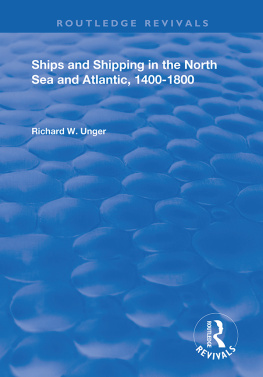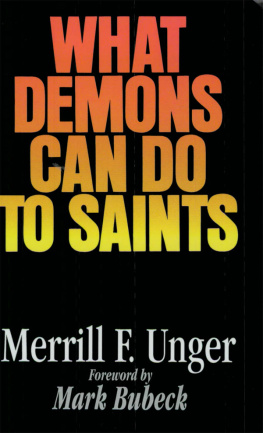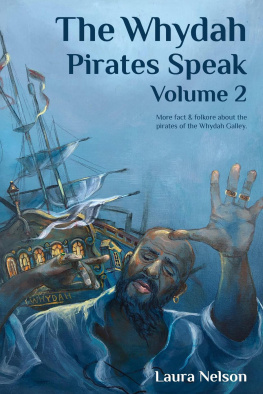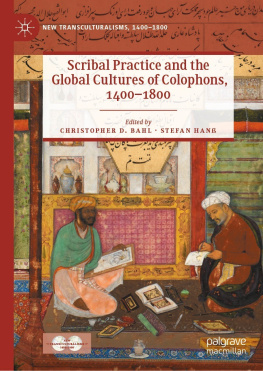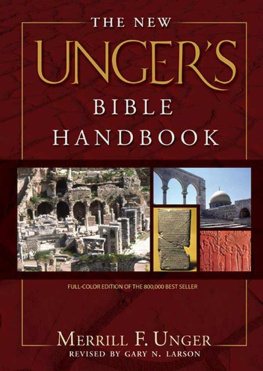Also in the Variorum Collected Studies Series:
DAVID JACOBY
Trade, Commodities and Shipping in the Medieval Mediterranean
JOHN H. PRYOR
Commerce, Shipping and Naval Warfare in the Medieval Mediterranean
ELIYAHU ASHTOR
East-West Trade in the Medieval Mediterranaean
P.E. RUSSELL
Portugal, Spain and the African Atlantic, 1343-1490 Chivalry and Crusade from John of Gaunt to Henry the Navigator
G.V. SCAMMELL
Ships, Oceans and Empire
Studies in European Maritime and Colonial History, 1400-1750
MICHAEL NORTH
From the North Sea to the Baltic
Essays in Commercial, Monetary and Agrarian History, 1500-1800
JACOB M. PRICE
The Atlantic Frontier of the Thirteen American Colonies and States Essays in Eighteenth-Century Commercial and Social History
JACOB M. PRICE
Overseas Trade and Traders
Essays on some Commercial, Financial and Political Challenges Facing British Atlantic Merchants, 1660-1775
URSULA LAMB
Cosmographers and Pilots of the Spanish Maritime Empire
FRANOIS CROUZET
Britain, France and International Commerce From Louis XIV to Victoria
JOHN HARRIS
Essays in Industry and Technology in the 18th Century: England and France
DENNIS O. FLYNN
World Silver and Monetary History in the 16th and 17th Centuries
VARIORUM COLLECTED STUDIES SERIES
Ships and Shipping in the North Sea and Atlantic, 1400-1800
Richard W. Unger
Ships and Shipping in the North Sea and Atlantic, 1400-1800
First published 1997 in the Variorum Collected Studies Series by Ashgate Publishing
Reissued 2018 by Routledge
2 Park Square, Milton Park, Abingdon, Oxon, OX14 4RN
52 Vanderbilt Avenue, New York, NY 10017
Routledge is an imprint of the Taylor & Francis Group, an informa business
Copyright 1997 by Richard W. Unger.
All rights reserved. No part of this book may be reprinted or reproduced or utilised in any form or by any electronic, mechanical, or other means, now known or hereafter invented, including photocopying and recording, or in any information storage or retrieval system, without permission in writing from the publishers.
Notice:
Product or corporate names may be trademarks or registered trademarks, and are used only for identification and explanation without intent to infringe.
Publishers Note
The publisher has gone to great lengths to ensure the quality of this reprint but points out that some imperfections in the original copies may be apparent.
Disclaimer
The publisher has made every effort to trace copyright holders and welcomes correspondence from those they have been unable to contact.
A Library of Congress record exists under LC control number:
ISBN 13: 978-1-138-38624-2 (hbk)
ISBN 13: 978-1-138-38625-9 (pbk)
ISBN 13: 978-0-429-42690-2 (ebk)
VARIORUM COLLECTED STUDIES SERIES CS601
CONTENTS
DUTCH SHIPBUILDING
Mededelingen van de Nederlandse Vereniging voor Zeegeschiedenis 24. Delft, 1972
Maritime History 3. Newton Abbot, 1973
The Mariner's Mirror 61. Exeter, 1975
Mededelingen van de Nederlandse Vereniging voor Zeegeschiedenis 30. Delft, 1975
First Translation o f Houten Scheepsbouw in Zeeland', Zeeuws Tijdschrift 26, 4/5, pp. 130-134. Middelburg, 1976
Postmedieval Boat and Ship Archaeology, ed. C. O. Cederlund. Oxford: B.A.R., 1985
Art in History/History in Art, eds J. de Vries and D. Friedberg. Santa Monica, CA: Getty Center fo r the History o f Art and the Humanities, 1991
First Translation of 'Scheepvaart in de Noordelijke Nederlanden 1490-1580', Nieuwe Algemene Geschiedenis der Nederlanden 7, eds J. A. van Houtte etal., pp. 109-122. Haarlem: Fibula-Van Dishoeck, 1979
Technology and Culture 22. Chicago, IL, 1981
Changing Interpretations and New Sources of Naval History, ed. R.W. Love. New York: Garland, 1980
Seamen in Society, Proceedings o f the International Commission of Maritime History, Perthes-en-Gatinais, France. Bucharest, 1980
Vice-Almirante A. Teixeira Da Mota In Memoriam 1. Lisbon: Academia de Marinila & Instituto de Investigagao Cientifica Tropical, 1987
The American Neptune 53, 4. Salem, MA, 1993
Atti del V Convegno Intemazionale di Studi Colombiani Navi e Navigazioni Nei Secoli XV e XVI. Genoa: Civico Istituto Colombiano, 1990
Les Marines de Guerre Europennes XVII-XVIIIe siecles, eds M. Acerra, J. Merino and J. Meyer. Paris: Presses de VUniversite de Paris-Sorbonne, 1986
The American Neptune 52, 4. Salem, MA, 1992
FISHING AND TRADE IN THE NORTH AND BALTIC SEAS
Ages: the False Legend of Willem Beukels of Biervliet Viator 9. Berkeley, CA, 1978
Journal of Economic History 40. Atlanta, GA, 1980
Mededelingen van de Nederlandse Vereniging voor Zeegeschiedenis 43. Delft, 1981
Medieval Ships and the Birth of Technological Societies 1: Northern Europe, eds C. Villain-Gandossi, S. Busuttil and P. Adam. Malta: Foundation fo r Intemtional Studies, 1989
This volume contains xii + 316 pages
PUBLISHERS NOTE
The articles in this volume, as in all others in the Collected Studies Series, have not been given a new, continuous pagination. In order to avoid confusion, and to facilitate their use where these same studies have been referred to elsewhere, the original pagination has been maintained wherever possible.
Each article has been given a Roman number in order of appearance, as listed in the Contents. This number is repeated on each page and quoted in the index entries.
Dutch trade and shipping have long been recognized as the source of the short period of prominence which those seven provinces enjoyed in European international politics in the seventeenth century. What made the success even more dramatic were the simultaneous political and economic difficulties of virtually all other European states. Dutch practices were looked on at the time as the ultimate key to prosperity and power. Much contemporary discussion turned on how to emulate the Dutch while destroying the basis for their power and prosperity. The critical role of exchange between East and West in the shifting balance of power in Renaissance northern Europe was the starting point for the entire programme of study covered in this volume. The search for answers led to a concern for the sources of Dutch success. Questions of how the Dutch did it date from the seventeenth century as do some of the answers proposed in the writing which follows in this book.
The capital goods of Dutch shipping, the ships, were known to be better, at least in business terms, than those of their competitors. Why that was so, how that was so and what caused that to be so led to an examination of a range of aspects of the Dutch shipbuilding industry. The general study in the book,

